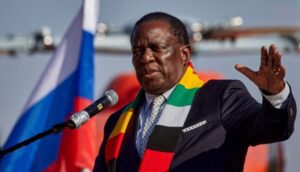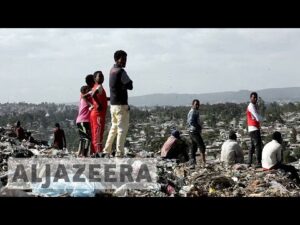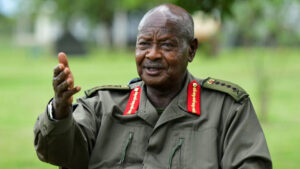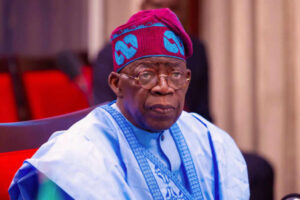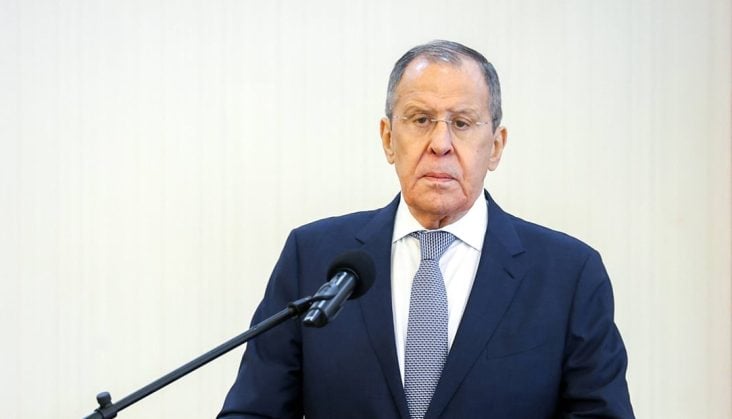
The foreign affairs ministers of Brazil, Russia, India, China, and South Africa are meeting in Cape Town to prepare for the next heads of state summit and re-launch the group’s ambitions.
We haven’t seen them all in the same room since 2019 after the Covid-19 pandemic put face-to-face BRICS meetings on hold. Since the virus no longer frightens anyone, the conference is being organized at the luxurious and remote Twelve Apostles Hotel and Spa on the outskirts of Cape Town, facing the Atlantic Ocean. The foreign affairs ministers were the first to gather around the table.
All accepted the invitation from South Africa, which holds the rotating presidency, including Russia’s Foreign Affairs Minister Sergei Lavrov, back in South Africa after his visit last January. He also took the opportunity to make another African tour, stopping off in Kenya, Burundi, and Mozambique – each time, he was received by the respective head of state.
Unanswered invitation
Lavrov’s high degree of mobility contrasts with the isolation of President Vladimir Putin, whose travel outside his borders has become rare since Russia invaded Ukraine in February 2022. The warrant of arrest issued against him by the International Criminal Court (ICC) on suspicion of war crimes makes his travels perilous.
Nevertheless, the Russian president has been invited to attend the BRICS summit, which will bring heads of state together in the Sandton business district north of Johannesburg on 22-24 August. As a signatory to the Rome Statute, South Africa would be obliged to arrest Putin if he were to appear in person. An unimaginable possibility in the eyes of the South African government, which is keen to maintain good relations with Russia. President Cyril Ramaphosa has set up an inter-ministerial committee to find a solution to this legal headache and invite Putin without flouting his own international commitments.
“South Africa is being swept by opposing winds,†says Sanusha Naidu, a researcher at the Institute for Global Dialogue. The country is caught between its desire to respect its international obligations while at the same time reforming the very institutions that formulate those obligations. The question of Putin’s visit in August is likely to be the “elephant in the room†at the ministers’ meeting, says Naidu.
“We hope that all the BRICS leaders will be present, and that is the indication we have,†Anil Sooklal, South Africa’s BRICS diplomat told TV BRICS.
Diplomatic immunity
Journalists and observers went into a frenzy at the start of the week when they discovered in the official journal that the meeting of foreign ministers and the BRICS heads of state summit was protected by diplomatic immunity. Some saw it as a maneuver by the SA government to allow Putin to land in South Africa without fear of being handcuffed on the airport tarmac.
“This is a classic declaration of immunity,†explained the Department of International Relations, pointing out that “these immunities do not take precedence over the issue of an international arrest warrantâ€. South Africa will therefore have to find another solution if it wants to roll out the red carpet for the Russian president.
In the meantime, Pretoria is taking advantage of its rotating presidency to advance the continent’s interests, in line with this year’s theme, “Africa and BRICS, a partnership for accelerated mutual growth, sustainable development and inclusive multilateralismâ€.
The BRICS countries are particularly interested in the African continental free trade area. A workshop on this theme was held in Durban on 31 May.
Club of 5
On 2 June, several African countries will be represented at the “Friends of BRICS†meeting in Cape Town. Twelve foreign ministers are scheduled to speak, including Christophe Lutundula for the DRC, Dhoihir Dhoulkamal for the Comoros and Hermann Immongault for Gabon. Egypt, which wants to join BRICS, will be virtually represented, while Algeria, another candidate, is not on the agenda.
The opening of the Club of 5 to “friends†demonstrates the interest shown by a part of the world in this alliance. This meeting is a “very important, crucial and symbolic moment for BRICS, at a time when the group is also being buffeted by the headwinds of a geopolitical situation that has become more complexâ€, says researcher Naidu. Â
To say the least. One of its members, Russia, has gone to war.

